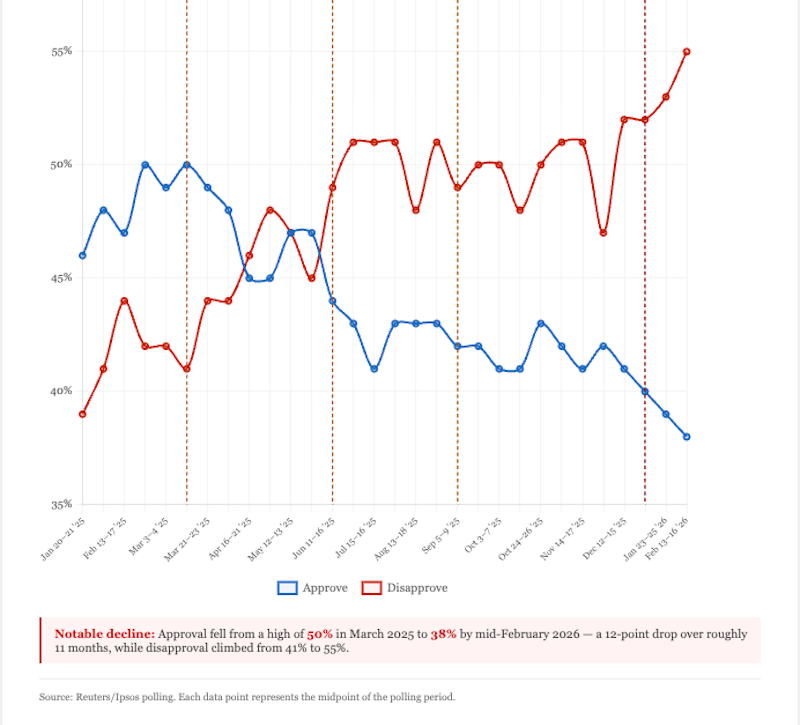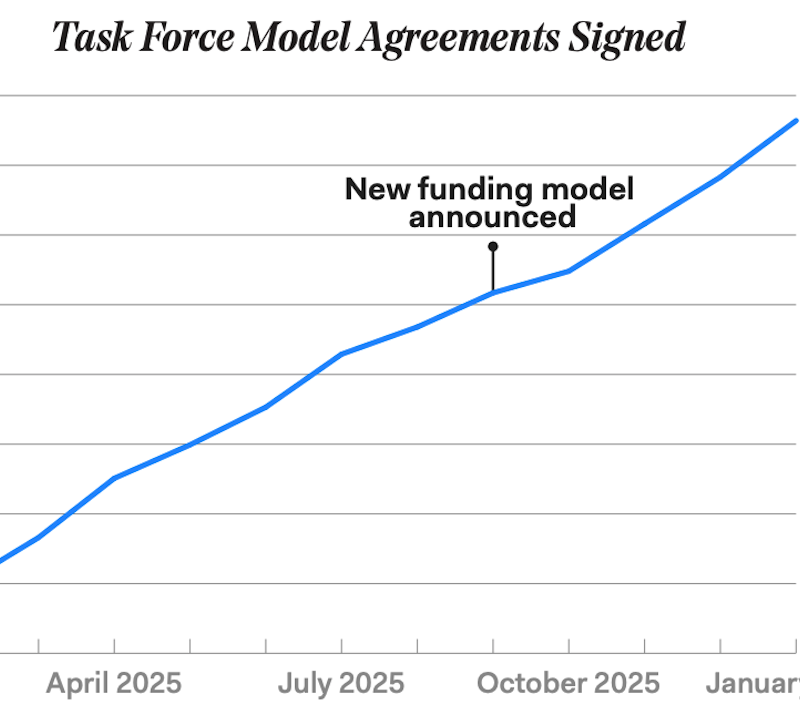“Announced immigration policies will result in American families paying an additional $2,150 for goods and services each year by the end of 2028”
American families have grappled with inflation in recent years as the costs of essential goods and services have increased, identifying it as the top issue of concern in the 2024 election, far above other issues like immigration. Months after the election, inflation remains a top concern for the majority of Americans.
But recent immigration policies proposed by President Trump, and already underway, such as revoking immigrant work permits, deporting millions of people, and limiting legal immigration, would directly undermine the goal to level out, or even lower, the costs of everyday and essential goods and services.
In fact, all Americans, particularly working-class families, are about to unnecessarily see prices for goods and services like food and housing increase substantially again, above and beyond other economic policies like global tariffs that could also raise prices. Recent and proposed immigration policies will result in American families paying an additional $2,150 for goods and services each year by the end of 2028, or the equivalent of the average American family's grocery bill for 3 months or their combined electricity and gas bills for the entire year. Such an annual increase would represent a tax that would erase many American families’ annual savings, and amount to one of their bi-weekly paychecks each year. Unlike past periods of inflation, Americans have not been saving at the same rate as earlier years, and can’t as easily absorb these price increases, squeezing American budgets even further.
At the same time, millions of families with immigrant family members are about to face the real, human toll of sudden poverty and family separation as a result of these immigration policies, leaving many immigrant parents unable to support their families, and pushing tens of thousands U.S. citizen children into poverty. Additionally, we would see billions of dollars lost in lifelong earning contributions to the U.S. economy, and the almost immediate loss of immigrant workers, among other negative impacts.
New immigration policies that would most significantly, and unnecessarily, raise the costs of goods and services include:
- The cancellation of work permits for millions of individuals with a temporary status, like people with Temporary Protected Status (TPS) who are unable to return to their countries, paroled immigrants from Afghanistan, and Deferred Action for Childhood Arrivals (DACA), among others.
- The mass deportation of millions of immigrants with or without legal status.
- Significant reductions in new, lawful immigration in the years ahead.
Notably, these policies would negatively affect the economic prosperity for Americans, who benefit significantly from the contributions of immigrants. And, the rise in prices is conservative given the promise of the current administration to push even more undocumented immigrants out of the workforce, through arrest and deportation, or by pushing people to leave on their own. Consequently, the rise in prices shown in our models is likely a middle of the road scenario.
Most of these policies have already been announced and are pending implementation. For example, the administration has cancelled TPS for people from Venezuela and Haiti, meaning their work permits will soon expire. The administration has issued executive orders to jump-start mass deportation efforts and set arrest quotas to dramatically increase the number of arrests, detentions and deportations. The administration has also removed deportation protections and work authorizations for those paroled into the country through the Cuba-Nicaragua-Haiti-Venezuela (CHNV) policy. In addition, the administration has previewed renewed efforts to limit legal immigration, including by drastically reinterpreting the “public charge” policy, stopping most refugee resettlement, banning the entry of individuals from certain countries, which will all lead to a lower number of new legal immigrants qualified to enter the U.S.









